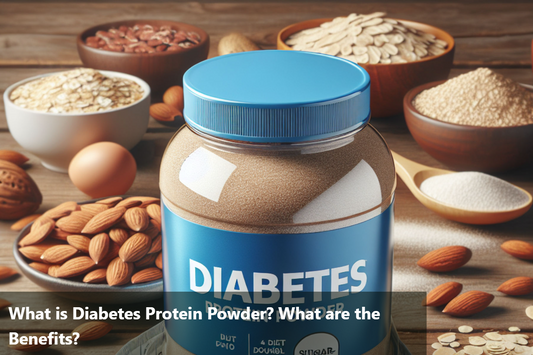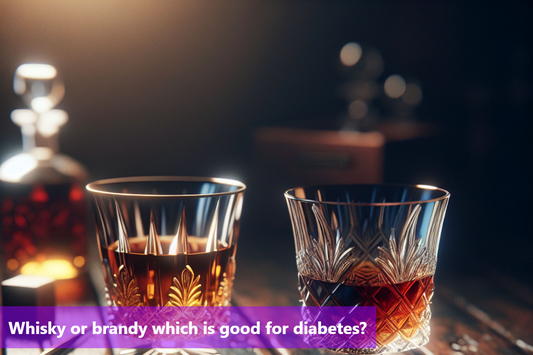Diabetes is a disease that results in the body’s inability to process the sugars in the blood. It is a chronic and progressive disease, i.e., it persists for a long time and develops gradually. Type 1 and Type 2 diabetes are the most common types of diabetes.
- Type 1 diabetes: This is a condition that occurs because of an absolute insulin deficiency caused by an autoimmune disease, whereby your immune cells destroy insulin-making cells in the pancreas. It usually appears during childhood or adolescence, but can also appear in adults. Since it involves insulin deficiency, there is currently no cure for Type 1 diabetes.
- Type 2 diabetes: A chronic condition that affects the way the body processes blood sugar because of insulin resistance caused by obesity. If left untreated, the constant state of high blood sugar may severely damage vital organs.
However, the good news is that with proper lifestyle alterations and medications, Type 2 diabetes can be put into remission! But first, What are remission and reversal of diabetes?
- ‘Reversal’ of diabetes is defined as maintaining HbA1c below 6.5% without any aid of glycemic control medications. These medications exclude metformin, because it can also be taken for conditions other than diabetes.
- ‘Remission’ is different from ‘reversal’. A situation where HbA1c is below 48 mmol/mol (<6.5%) for more than a year without taking any medications is called ‘partial remission’ and when the fasting glucose levels are less than 5.6 mmol/L for over a year without any medications, it is called ‘complete remission’.
To know more about remission, read this significant publication on remission and some dietary strategies.
Identifying early symptoms
Identifying the symptoms of diabetes in an early stage is quite advantageous since it increases the chances of management and remission of the condition. Some of the early symptoms to look for include :
- Unusually increased thirst and hunger
- Weakness and fatigue
- Slow-healing sores, cuts, and wounds
- Catching frequent infections
- Unintended and unassisted weight loss
- Blurred vision
- Tingling or numbness in hands, arms, or feet
How can diabetes be put into remission?
In earlier days, diabetes used to be a severe and, sometimes, life-threatening disease. However, with advancements in science, recent research has shown that there are three ideal ways through which the remission of diabetes can be achieved:
-
Bariatric surgery
- Bariatric surgery or weight-loss surgery, especially gastric bypass and gastric banding, has shown tremendous results in controlling Type 2 diabetes.
- Gastric bypass surgery is one of the most effective ways of achieving remission for Type 2 diabetes. It involves making the size of the stomach potentially smaller by changing the way intestines are connected and fewer meals can be eaten thereafter. Weight loss and the permanent need for the consumption of nutrient supplements are also involved.
- This procedure involves considerable risks during and after the surgery.
- It was shown in a study that after three years of gastric bypass, participants with Type 2 diabetes achieved remission.
-
Very low-calorie diets
-
Diet is an extremely important factor for a diabetic. Very low-calorie diets, which involve consuming less than 800 calories per day, are another way of putting diabetes into remission successfully.
-
The DiRECT study, short for Diabetes Remission Clinical Trial, has found ground-breaking results with regard to incorporating low-calorie diets into the daily lifestyle of diabetics. It can be concluded that these types of diets are good for diabetics.
-
The results of this ongoing study show that 45.6% of those who took part in the programme went into remission after a year. Moreover, 70% of those people were still in remission by the end of the second year as well.
-
However, even though they can be considered as a diabetic diet, following such a diet comes with a significant downside, involving effects like weak bones, reduced metabolism and immunity, as well as compromised fertility.
-
Low-carb diets
- A low-carb diet helps in controlling diabetes since it reduces the amount of insulin the body needs to produce and consequently reduces insulin resistance. This diet is a better option for a diabetic patient.
- A review conducted in 2013 showed that a ketogenic diet is more impactful in improving blood sugar control, A1c, weight loss and discontinued insulin requirements than other diets.
- Lo! Foods offer diabetic food home delivery and other delicacies that make following a diabetic diet oh so simple and fun.
The bottom line
Diabetes is a serious condition, which can cause life-threatening conditions if not treated well. Type 2 diabetes is a condition which can be controlled and put into remission by adopting proper lifestyle changes such as losing weight and altering food choices, apart from medications. Early diagnosis of diabetes is especially beneficial since it allows room for the best chances for diabetes remission.
Bariatric surgery and Very Low-Calorie Diets are two ways to the remission of diabetes, however, they entail considerable risks and side effects. Low-carb diets and well-formulated ketogenic diets help reduce weight and manage diabetes more efficiently than the other two.
References:
https://www.mayoclinic.org/diseases-conditions/type-2-diabetes/symptoms-causes/syc-20351193
https://www.nature.com/articles/ejcn2013116
https://onlinelibrary.wiley.com/doi/10.1111/jhn.12938
This Blog post is an initiative by DiabeSmart, to provide accurate and Nutritionist / Doctor approved information related to Diabetes. DiabeSmart is India's first Food brand designed specifically for Diabetics, that has been clinically tested on Diabetics and Pre-Diabetics to deliver 55% - 70% lower Sugar spikes. DiabeSmart is part of Lo! Foods - India's leading brand for Everyday Functional Health foods.













